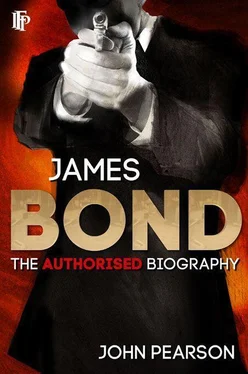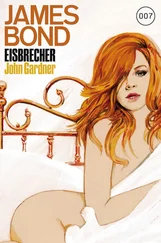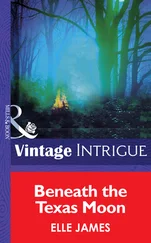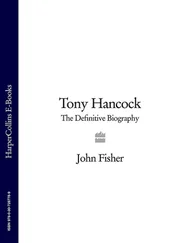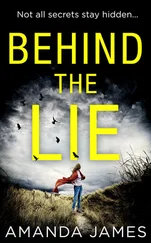John Pearson - James Bond - The Authorised Biography
Здесь есть возможность читать онлайн «John Pearson - James Bond - The Authorised Biography» весь текст электронной книги совершенно бесплатно (целиком полную версию без сокращений). В некоторых случаях можно слушать аудио, скачать через торрент в формате fb2 и присутствует краткое содержание. Год выпуска: 2008, ISBN: 2008, Издательство: Random House, Жанр: Шпионский детектив, на английском языке. Описание произведения, (предисловие) а так же отзывы посетителей доступны на портале библиотеки ЛибКат.
- Название:James Bond: The Authorised Biography
- Автор:
- Издательство:Random House
- Жанр:
- Год:2008
- ISBN:9780099502920
- Рейтинг книги:4 / 5. Голосов: 1
-
Избранное:Добавить в избранное
- Отзывы:
-
Ваша оценка:
- 80
- 1
- 2
- 3
- 4
- 5
James Bond: The Authorised Biography: краткое содержание, описание и аннотация
Предлагаем к чтению аннотацию, описание, краткое содержание или предисловие (зависит от того, что написал сам автор книги «James Bond: The Authorised Biography»). Если вы не нашли необходимую информацию о книге — напишите в комментариях, мы постараемся отыскать её.
James Bond: The Authorised Biography — читать онлайн бесплатно полную книгу (весь текст) целиком
Ниже представлен текст книги, разбитый по страницам. Система сохранения места последней прочитанной страницы, позволяет с удобством читать онлайн бесплатно книгу «James Bond: The Authorised Biography», без необходимости каждый раз заново искать на чём Вы остановились. Поставьте закладку, и сможете в любой момент перейти на страницу, на которой закончили чтение.
Интервал:
Закладка:
‘You takin’ lunch today, Commander?’ asked Augustus.
The Commander nodded.
‘Customary table?’
Bond grunted his assent. I checked an urge to smile.
‘You must excuse me,’ said James Bond. ‘I am a creature of routine. A dangerous thing in my profession, but I feel here it does no harm.’
The customary table proved to be the best in the hotel – set well back from the pool and shaded by a great hibiscus, busy with humming birds. Clearly the birds delighted Bond, taking up most of his attention so that it was harder to get him to continue with the story of his life. Once more he did the ordering – ‘I always have the lobster done with coconut and lime juice, and avocado salad; then perhaps some guavas and blue mountain coffee. Suit you? The usual, twice, Augustus.’ When the food came, he ate with relish.
I asked him about getting thrown out of Eton. How did Aunt Charmian react?
‘Oh, she was wonderful, although I know that she was bitterly upset. You see, the dear old thing had this firm idea that I was infected with what she used to call “the curse of the Bonds”, and that her task in life was to save me from it. When I got into Eton she thought that I would be a gentleman at last. Now that I was leaving under a cloud she really thought that I was going to the dogs.’
‘Wasn't she angry?’
‘No. That was the marvellous thing about her. She never blamed me. She blamed herself. Made me feel dreadful. There was quite a rumpus in the family about me. My mother's people seemed to think that I should go to Switzerland and live with them. The family in Glencoe seemed in favour of sending me to prison. As a compromise I was finally packed off to my father's old school, Fettes. I rather liked it after Eton, stayed there until sixteen, then got fed up with it. Decided it was time to move on. Got to Geneva University. And that was where the trouble really started.’
Bond explained that the strange decision to study at Geneva came through the Delacroixs. Ever since the Eton episode old man Delacroix had kept pressing for him to spend some time in Switzerland. Finally James Bond suggested the idea of studying at the university as something of a compromise. The Delacroixs would pay but he would naturally have rooms close to the university; for by now James Bond was keen on having his independence. Above all, he wanted the chance to live his own life free from the crush of communal living in a boarding school.
Surprisingly, he liked Geneva. One says “surprisingly” because the prim, staid city is hardly the background one associates with Bond. And yet as soon as he arrived he felt at home here. Part of the explanation may be that he was half Swiss, and part that he was suddenly experiencing freedom here for the first time in his life. But there was something else about Geneva that appealed to him, and he agreed with Ian Fleming on the subject. For both of them it had, what Fleming called, a ‘Simenon-like quality – the quality that makes a thriller-writer want to take a tin-opener and find out what goes on behind the facade, behind the great families who keep the banner of Calvin flying behind the lace curtains in their fortresses in the Rue des Granges, the secrets behind the bronze grilles of the great Swiss banking corporations, the hidden turmoil behind the beautiful bland face of the country’.
This then was Switzerland for Bond, and he was fascinated by it. He had two rooms with a respectable Swiss lady over a sweet-shop off the Quai Gustave Ador. In theory, the good lady was supposed to keep a strict eye on him both for the university and the family. In fact, James Bond soon used the charm on her that worked infallibly with elderly ladies of all nationalities; within a month he had Frau Nisberg round his little finger. For the first time in his life he found himself free to do exactly as he wanted.
He worked – a little; enough at any rate to satisfy the university. He attended lectures in psychology and law and read quite widely. Otherwise, he amused himself. Right from the start, he showed himself quite self-sufficient. He was completely selfish. Apart from girls, he had no need for other people in his life, and was extraordinarily single-minded in the way he went after what he wanted. That first winter in Geneva he fell in love with winter sports.
As with his golf, James Bond was not a stylish skier. He was too wild to become a star. But he had total dedication, outstanding stamina, and he loved taking risks. Near Chamonix there is a famous ski-run, the so-called Aiguilli du Midi, which in its day was the supreme test of all the top-flight internationals. One of the young instructors with the university ski-club constantly referred to it. He was a conceited and unpleasant young man who liked to show off to the novices. These included Bond, who was officially still in the beginners' class. Bond resented him. He, in turn, took every opportunity to make a fool of Bond. After one final training session during which the instructor behaved more obnoxiously than usual, Bond decided he had had enough. The instructor had been making fun of James Bond's style, or lack of it, and saying that he should try it out on the Aiguilli du Midi – then he would see how long he lasted.
‘Fine,’ said James Bond, ‘we'll try.’
The instructor said this was impossible. Chamonix was two hours' drive from Geneva, and he was only joking. James Bond replied that he never joked. Early next morning the two of them set off. By the time they had reached the top of the ski lift, the instructor was begging Bond to come to his senses. He apologized for seeming to make fun of him. He would make any restitution that he pleased. But he must realize that if he attempted the Aiguilli he would quite certainly be killed. Bond made no reply except to ask him if he wanted to go first or second. The instructor, thinking that Bond would need help, said he would follow him.
‘Please yourself,’ said Bond as he checked his skis.
The beginning of the Aiguilli is spectacular. There is a straight drop of more than a mile between the narrow shoulders of the mountain; from there the ski-run passes between rocks and clumps of pine then plunges down into the valley. The hazard comes from the sheer speed of the descent – after that first drop the skiers are hurtling on at speeds approaching sixty miles an hour. To keep control at such a speed is a supreme test of nerve and skill.
Bond put on his goggles and, without looking back, thrust himself off. To this day he is not sure how he survived. Some instinct from generations of mountaineers must have helped preserve him – also his strength and his beginner's luck. For the hair-raising first mile of the descent he thought that he had gone. He had no control – nothing except the will to stay alive. But then he realized that he was winning. His mind was very clear. The closeness of death was sharpening his reactions; for the first time he was enjoying the one drug to which he would always be addicted – danger.
The remainder of the run was an experience of pure exhilaration which he has never forgotten. At the bottom of the slope he didn't wait for the instructor, and never spoke to him again – nor did he ever go back to the beginners' class.
But this piece of bravado was important for James Bond. Once he had tasted such excitement he needed more. From that moment on, life became a pursuit of such extremes. It was around this time that he met a Russian student called Gregoriev – a drunken, violent youth with a black beard. He was an anarchist, and Bond enjoyed hearing him rail against society, morality and all the forces of their so-called civilization. Something deep down in Bond agreed with him and they often drank together late into the night. It was during one of these drunken sessions that Gregoriev introduced James Bond to Russian roulette. He produced a rusty .32 Smith and Weston, put in a single bullet, spun the chamber, put it against his forehead and pulled the trigger.
Читать дальшеИнтервал:
Закладка:
Похожие книги на «James Bond: The Authorised Biography»
Представляем Вашему вниманию похожие книги на «James Bond: The Authorised Biography» списком для выбора. Мы отобрали схожую по названию и смыслу литературу в надежде предоставить читателям больше вариантов отыскать новые, интересные, ещё непрочитанные произведения.
Обсуждение, отзывы о книге «James Bond: The Authorised Biography» и просто собственные мнения читателей. Оставьте ваши комментарии, напишите, что Вы думаете о произведении, его смысле или главных героях. Укажите что конкретно понравилось, а что нет, и почему Вы так считаете.
